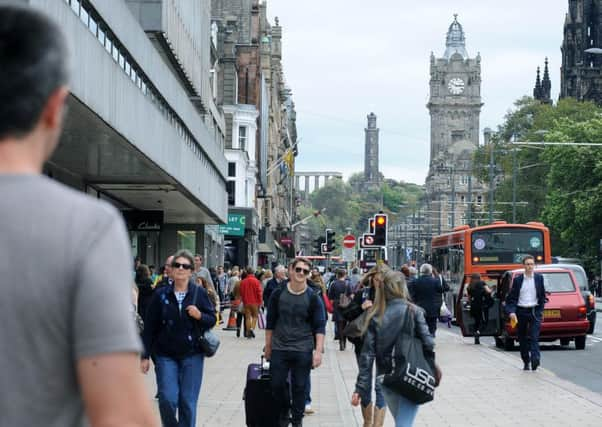Martin Flanagan: Stability trumps inflation in rates debate
This article contains affiliate links. We may earn a small commission on items purchased through this article, but that does not affect our editorial judgement.


In addition, Carney has said those higher rates are still likely to be lower on average than we have grown used to down the years.
But what we weren’t expecting were left-field developments suggesting the first rise might now arrive several months ahead of previous loose consensus expectations of the first quarter or two of 2018.
Advertisement
Hide AdAdvertisement
Hide Ad• READ MORE: Sterling surges as BoE moves closer to rates hike
The pretty finely poised 5-3 vote in the BoE’s monetary policy committee (MPC) at its June meeting, shown in the minutes released yesterday, has blown that expectation away. Some are now speculating that if inflation – 2.9 per cent and rising – continues its upward path we may see a hardening of the hawks on the committee and a rate hike by late this summer or the autumn.
We have got used to seeing the occasional hawk with a dissenting judgement from the pervasive MPC view in tougher economic times that rates should stay on hold.
Kristin Forbes, who is shortly to step down, has been the most recent gimlet eye in favour of monetary tightening. But at the latest MPC meeting she was joined by Ian McCafferty and Michael Saunders, the first time in six years that a gang of three have argued that interest rates should go up.
• READ MORE: Holiday costs push inflation towards four-year high
Clearly, the committee is disquieted by the surge in inflation over the past year. Sterling has taken a shot to the body since last June’s Brexit vote in the UK. That has pushed up input prices for British business, and factory gate inflation is now feeding into the high street.
The rub is how long Carney and co will continue to “look through” rising prices to the wider picture of a current UK economic slowdown, and decide on balance that rates need to stay where they are so as not to scare the horses (panic consumers).
Advertisement
Hide AdAdvertisement
Hide AdThose consumers have been the lifeblood of growth for years now, and would a rate rise or two kill the golden goose? I think the risk is currently worth taking to keep rates where they are.
The country is in a worse place, politically and economically, than it was two years ago. Stability trumps inflation for now.